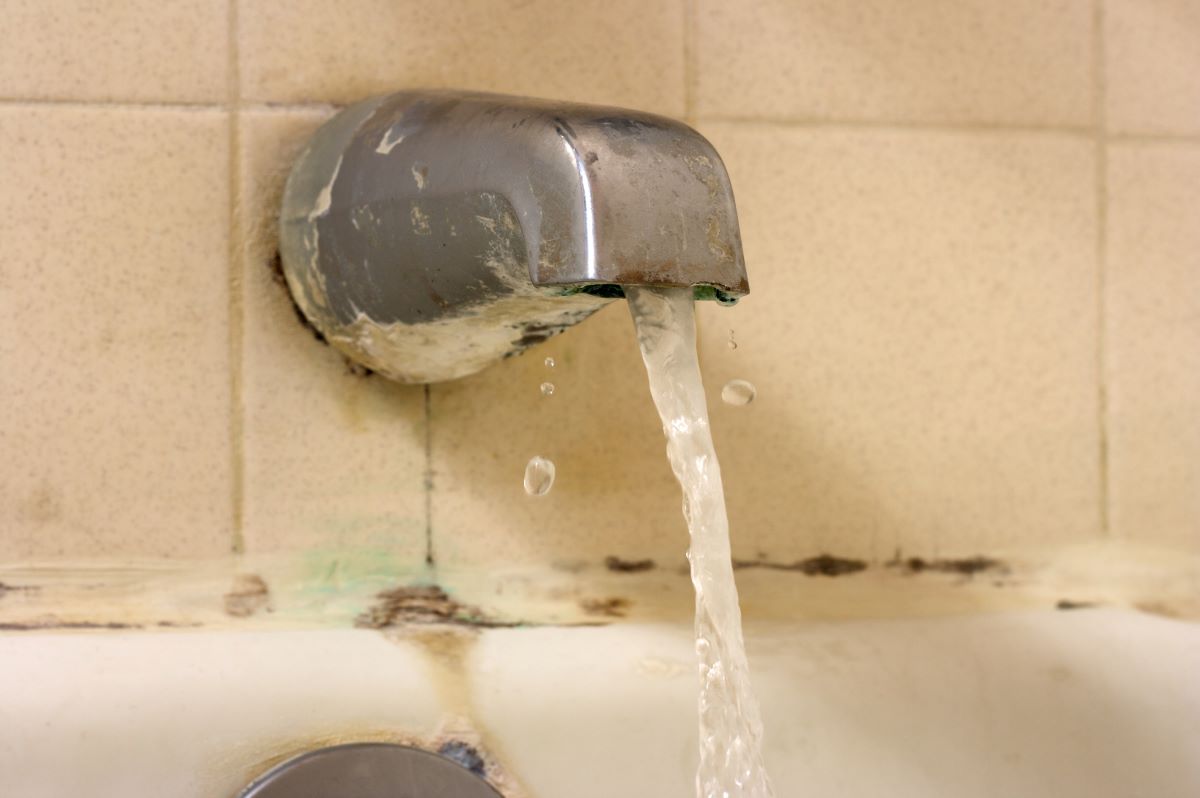

We may earn revenue from the products available on this page and participate in affiliate programs. Learn More ›
Home Advice You Can Trust
Tips, tricks & ideas for a better home and yard, delivered to your inbox daily.
Hard water is an issue in 85 percent of the country, according to the U.S. Geological Survey. While many municipal water treatment plants soften this water, eliminating the problem before it arrives at your tap, not all do. And if you’re on well water, it’s up to you to solve a water hardness problem. Hard water is caused by minerals in the water, typically calcium, magnesium and lime. While these minerals don’t pose any health risks when ingested (many are actually good for you), they can cause problems with plumbing, laundry, and even in your skin and hair. Click through to find out more about the problems hard water can cause and to learn what you can do about it.
RELATED: I Made This One Smart Investment to Ensure My Plumbing and Appliances Last Longer
Shortened Hot Water Heater Lifespan

Photo: Crispin la Valiente via Getty Images
On average, a hot water heater lasts 8 to 10 years, but hard water can shorten its life to as few as 4 to 6 years, depending on the amount of minerals present. Over time, limescale forms on the heating element, encasing it and reducing its ability to heat the water. As well, mineral deposits settle at the bottom of the tank, decreasing the amount of available hot water.
“One customer’s water heater was so full of buildup, it stopped heating altogether,” said Al Fagundes, the founder and CEO of A. Fagundes Plumbing & Heating Deposits. “We cut it open and it looked like someone poured cement inside. It’s not always that extreme, but left unchecked, hard water can absolutely wreck your plumbing and appliances over time.”
Mineral Buildup Around Faucets

Photo: Abhishek Mehta via Getty Images
If the surface around your kitchen and bathroom sink faucets develops a white film or stubborn deposits that are difficult to scrub away, it’s a sure sign your water is hard. This mineral buildup can often be removed by using a cleaner made for dissolving lime deposits, but it will continue to form as long as you’re using hard water.
Scummy Residue on Tubs and Showers
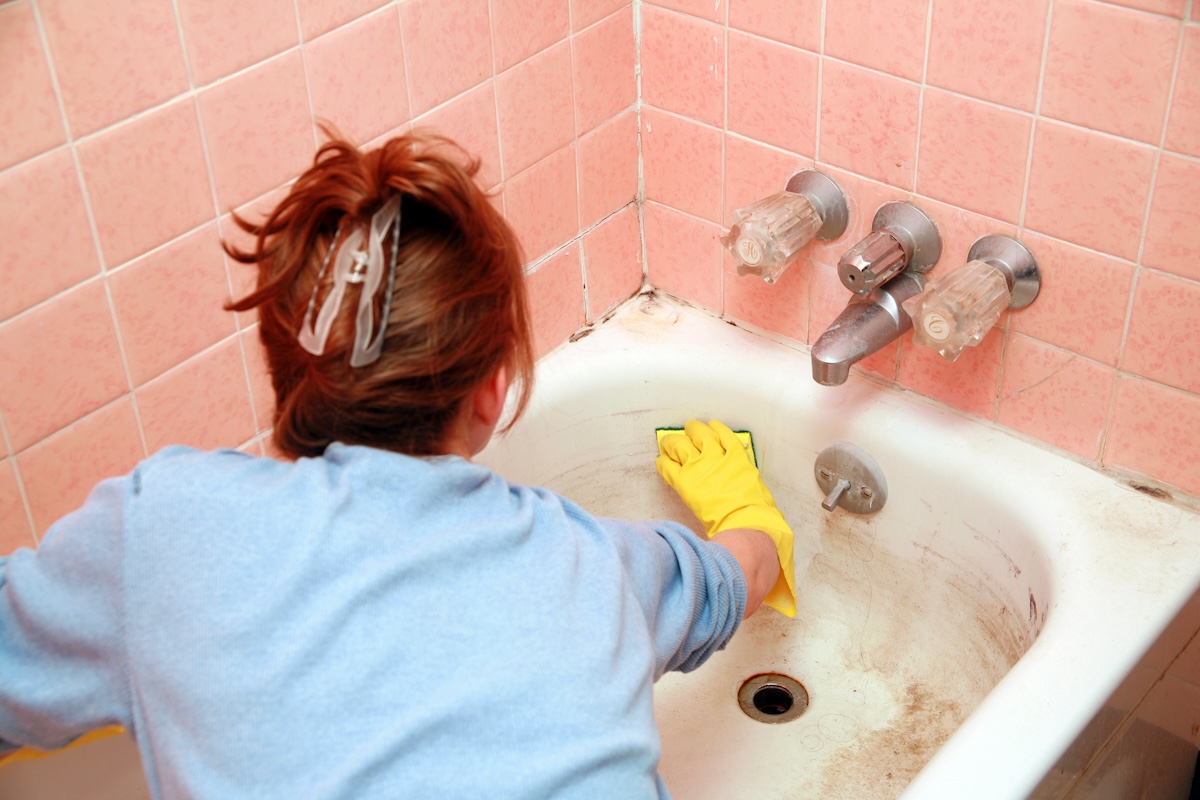
Photo: Sharon Dominick via Getty Images
The high level of calcium found in hard water prevents soap from dissolving and rinsing away. Instead, the soap forms an insoluble white or yellow residue we commonly refer to as soap scum that sticks to tile, bathtub surrounds, and shower curtains. Even after cleaning with a product designed to dissolve soap scum, these surfaces often look dull and unattractive.
Slow-Flushing Toilets
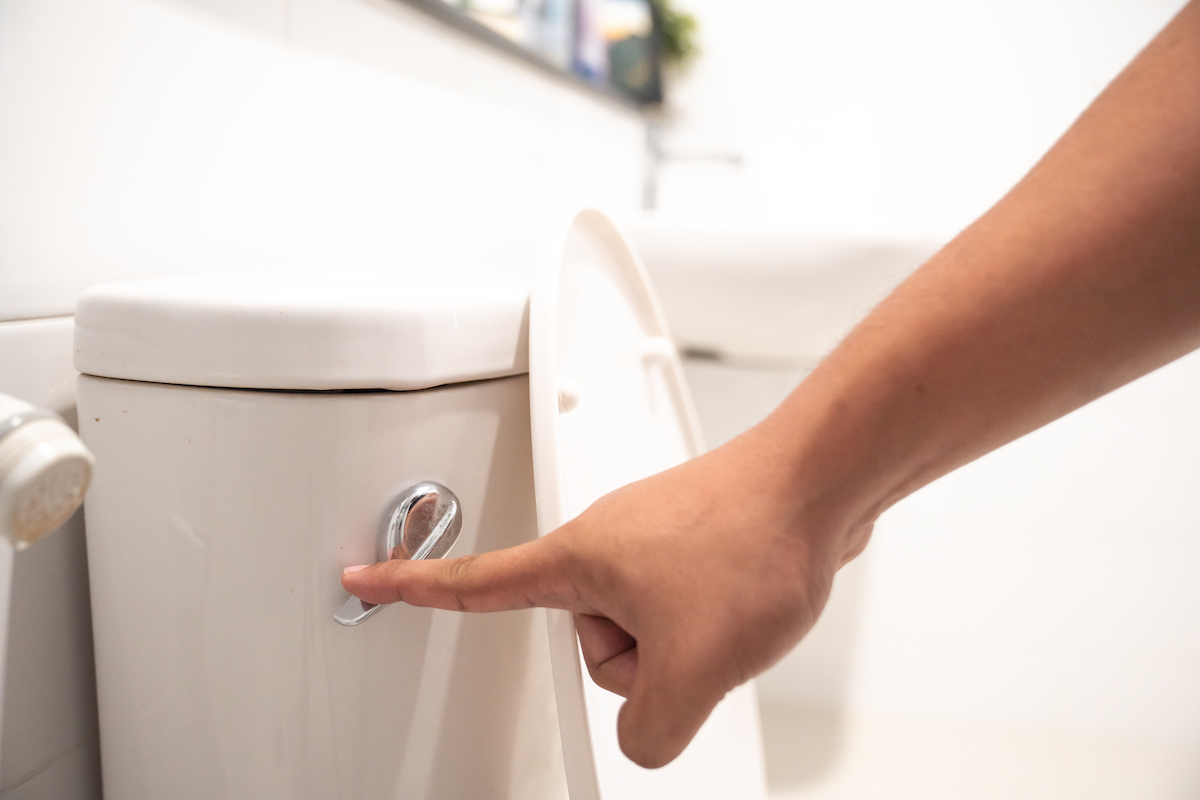
Photo: Witthaya Prasongsin via Getty Images
Mineral deposits will form on any surface that comes into regular contact with hard water. Toilets tend to exhibit problems early on as impurities form inside the drainpipes, narrowing them, reducing water flow, and leading to clogs.
“We’ve seen homes where the pipes were practically clogged shut with mineral scale,” says Fagundes. You can use a solution of baking soda and vinegar to help clear build-up. A plumbing snake can also physically remove scaling, but if the problem becomes too severe, you’ll need to call in a plumber.
Spotty Glasses and Dishes
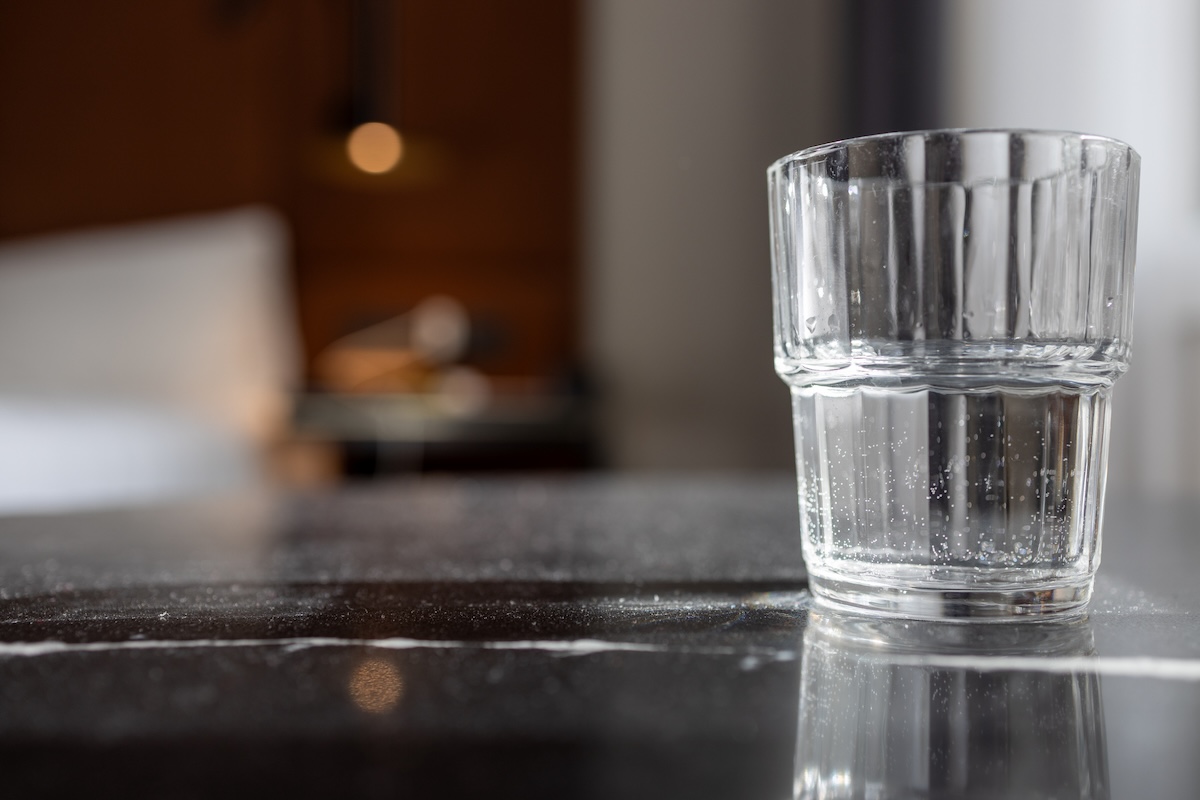
Photo: Kate Wieser via Getty Images
No matter how much rinse aid you add to your dishwasher, your glasses, dishes, and flatware will end up with cloudy spots if you have hard water. Some homeowners report that adding distilled white vinegar to the machine helps cut down on spotting, but there’s always the old-fashioned solution: Hand-wash your dishes and dry them by hand before they can air-dry.
Dingy Laundry

Photo: Santiago Urquijo via Getty Images
No amount of bleach will make your white clothes sparkle if you have hard water. Not only does the high mineral content prevent the detergent from thoroughly cleaning your fabrics, but the mineral deposits also remain in your clothing, leaving everything looking yellowish-gray and dingy. An effective remedy for this problem is to add a water softener, such as Calgon Gel Water Softener, to each load of laundry.
Slow Sink Drains
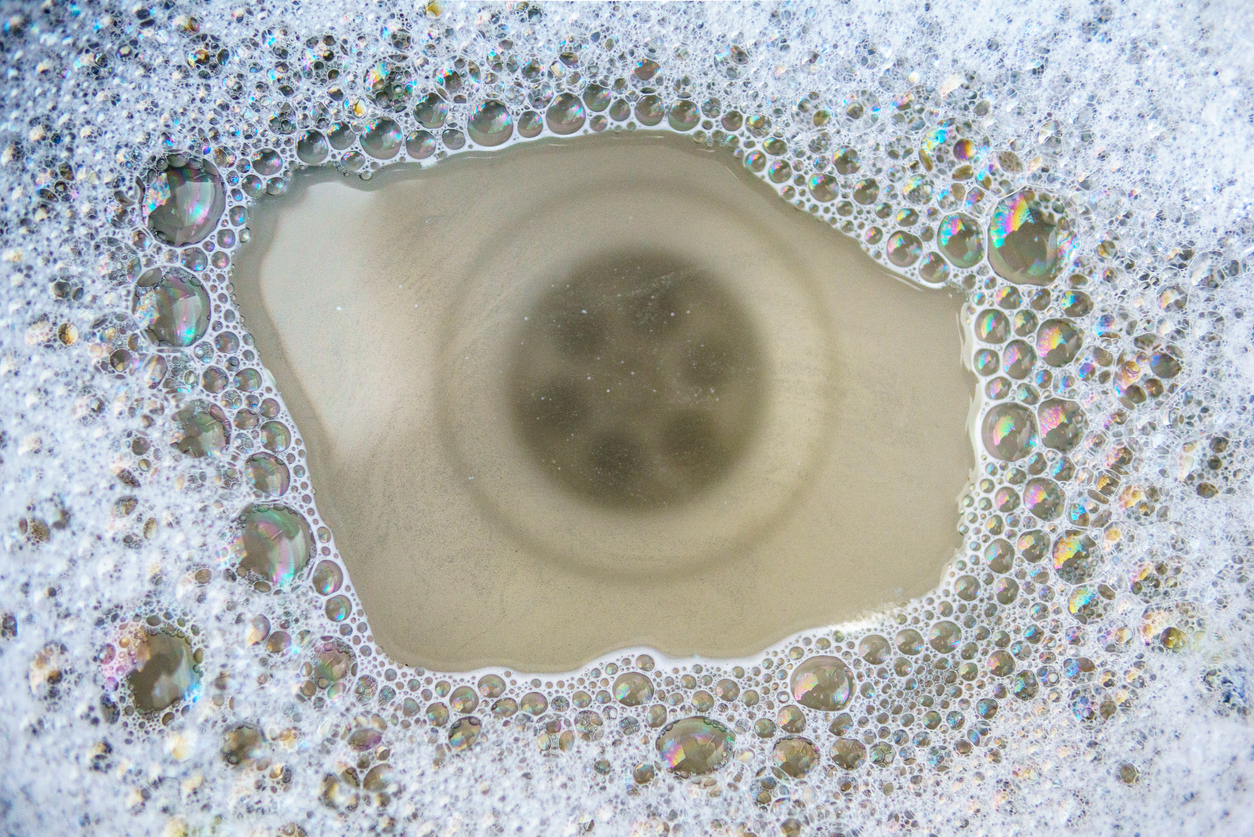
Photo: iStock
As the minerals in hard water build up inside your sinks’ drainpipes, they reduce water flow, resulting in sluggish drainage. This also increases the risk of clogs forming when bits of food and other debris get stuck in the narrowed pipes.
Shorter Appliance Lifespan

Photo: Hispanolistic via Getty Images
Appliances that use water, such as the dishwasher, washing machine, and ice maker, won’t last as long in a house with hard water as they will in a house with soft water. Mineral deposits can block small water supply lines, narrow drain lines, and build up on internal components, reducing an appliance’s effectiveness and lifespan.
Less-Than-Invigorating Showers
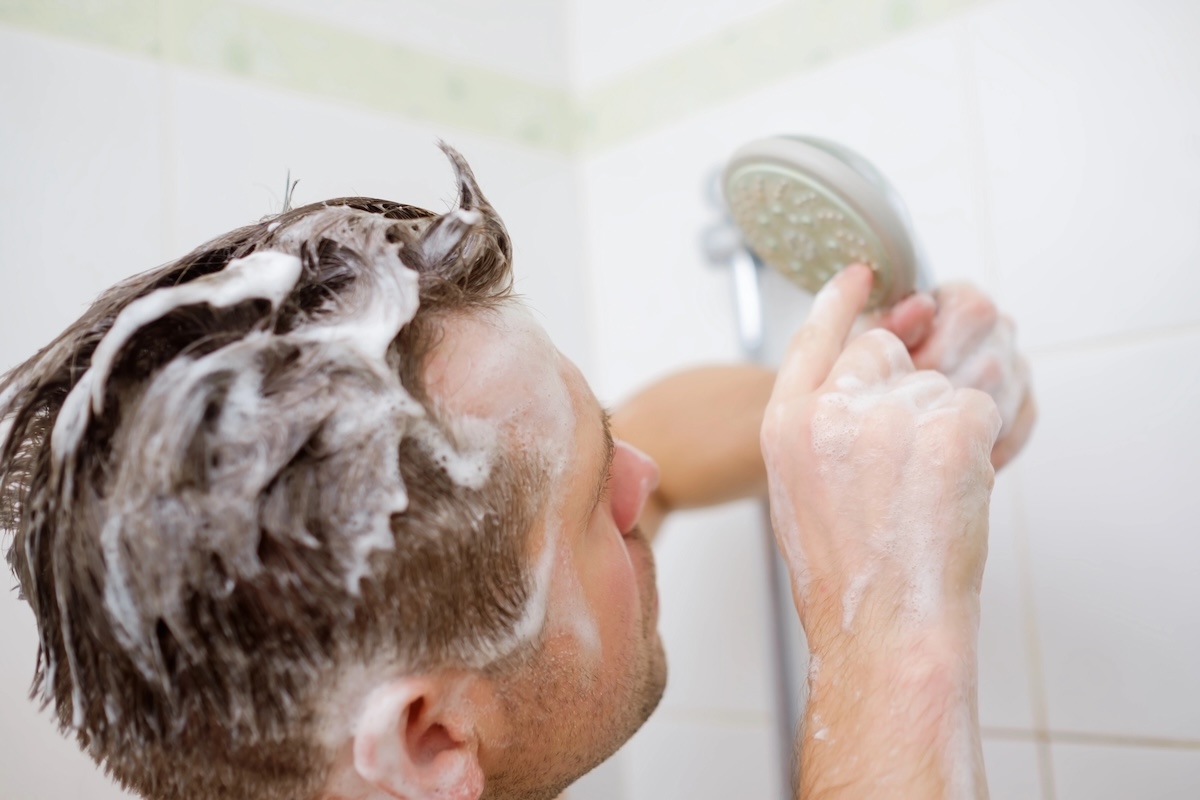
Photo: Koldunova_Anna/Depositphotos
The shower head is often one of the first fixtures in the house to suffer from hard water. The tiny holes that once produced a refreshing spray of water quickly clog, instead producing a dismal trickle or an errant spray that shoots out at an undesirable angle.
“A good showering experience can be really challenged as hard water starts clogging up parts of the sprayer,” says Mike Sale, Home Water Systems Expert and Certified Water Sommelier for Delta Faucet.
If your shower experience needs an upgrade, our tested guide to the best shower heads has many good picks from which to choose.
Corroded Plumbing Connections
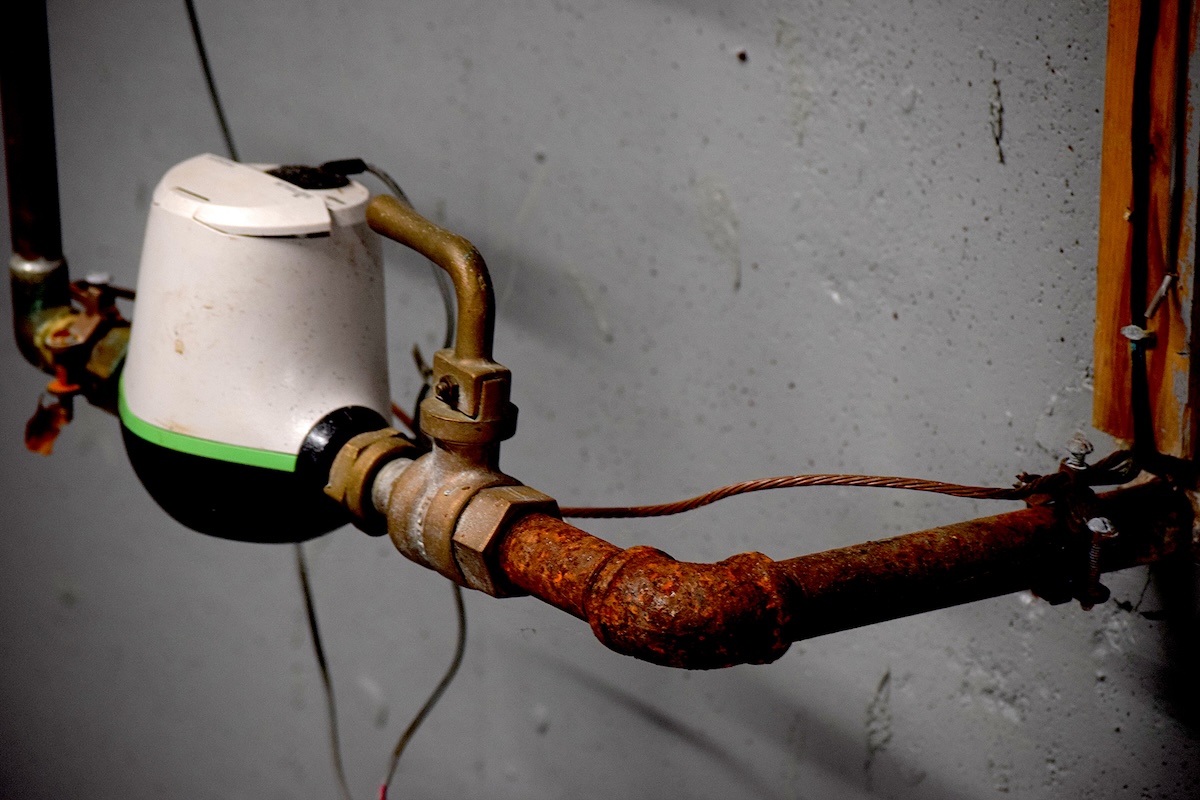
Photo: Philippe Gerber via Getty Images
A small leak in any plumbing joint can be a problem, but in a home with hard water, it’s a much bigger problem. When hard water leaks from a plumbing connection, mineral deposits form in the joint itself, corroding the pipe and making it impossible to replace the joint without cutting away sections of the pipe.
Rusty Toilet Rings
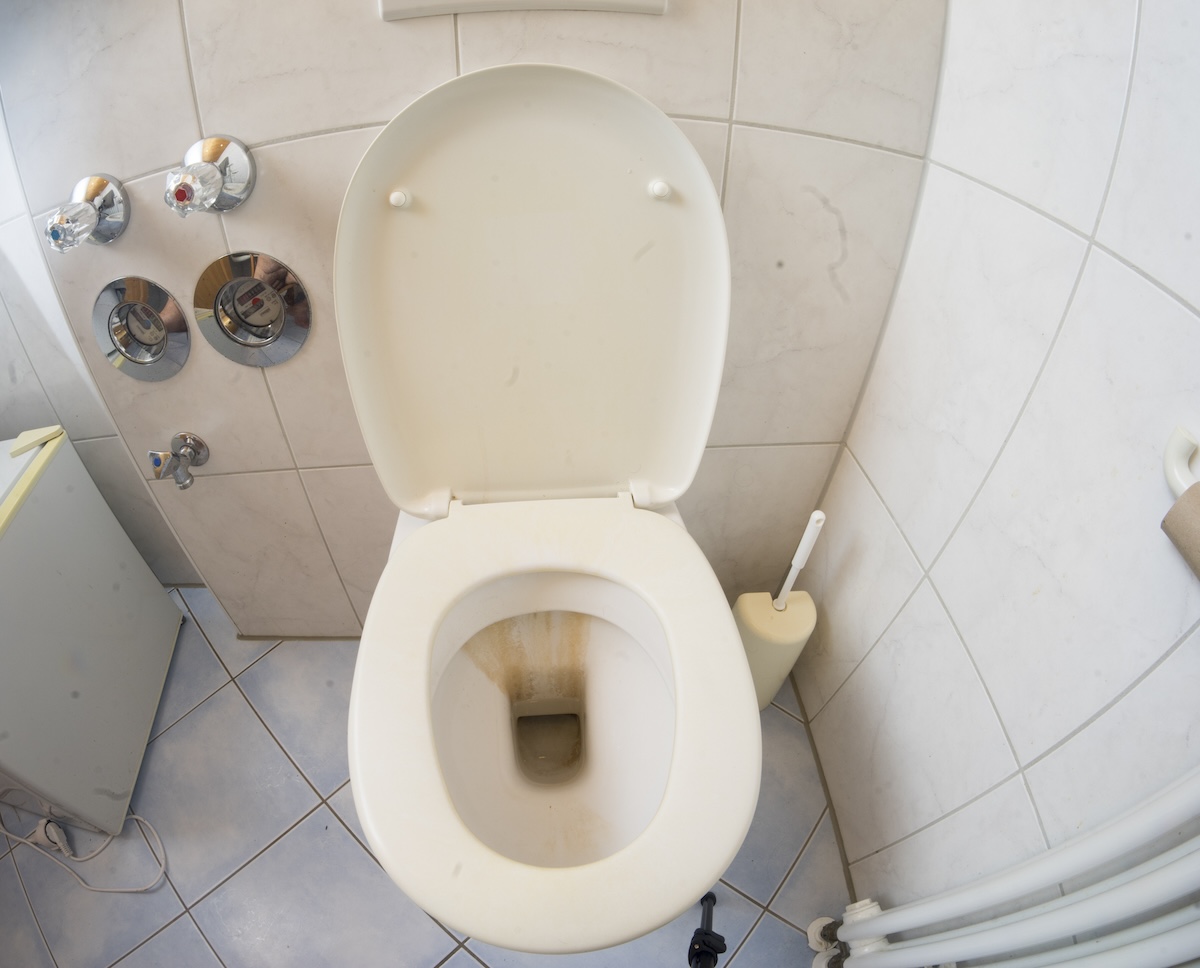
Photo: Copyright Kypros 2023 all rights reserved via Getty Images
Anywhere hard water stands, deposits will form. Not surprisingly, this tendency leads to rusty ring stains inside the toilet bowl. Keeping the toilet ring-free may require frequent scrubbing with powerful cleaners.
Discolored Brick Siding
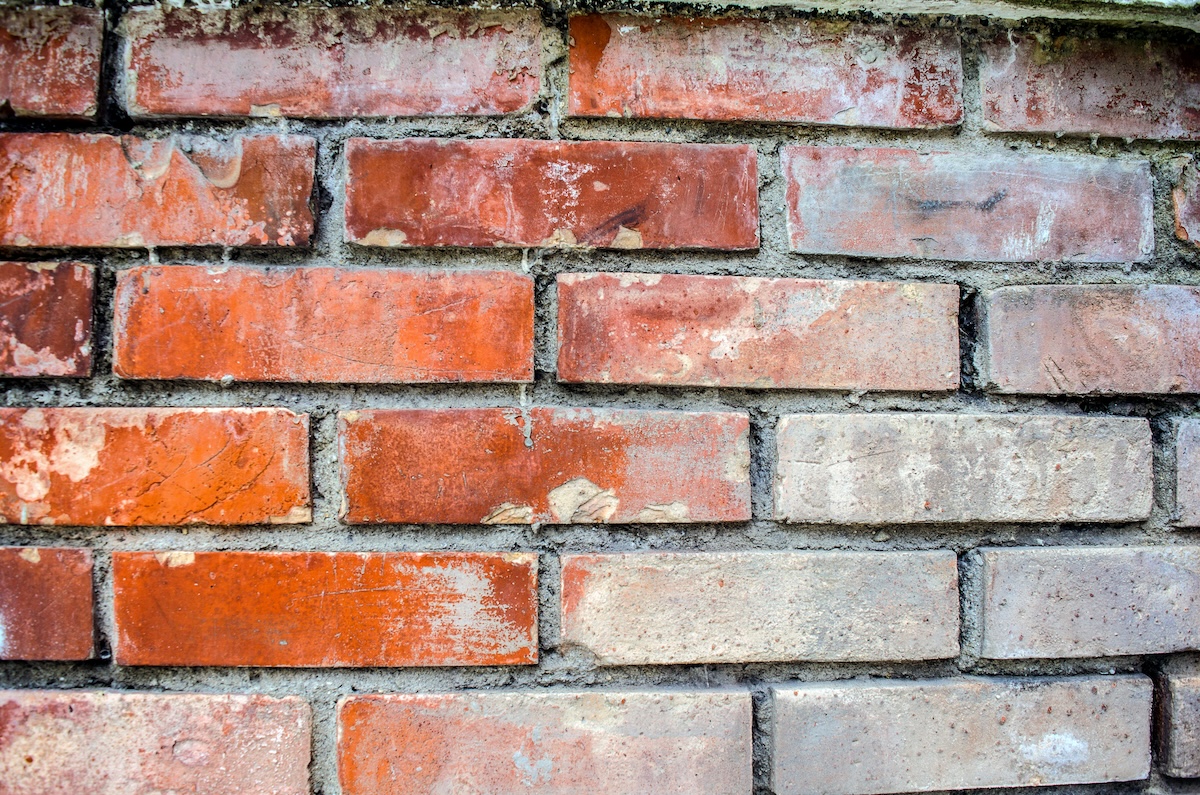
Photo: David Crespo Nieto via Getty Images
It’s usually not a big deal when water from your sprinklers hits your house, but if you have hard water and brick siding, you may end up with an unattractive white haze on the bricks. These mineral deposits can be removed only by using an acid-based brick cleaner.
Latherless Shampoos

Photo: Guido Mieth via Getty Images
Because the minerals in hard water prevent it from blending with soaps and shampoos, you won’t get a full head of lather when you wash your hair. Depending on how hard the water is, you might not see any lather at all, and your hair may look and feel dull even after you rinse the shampoo out.
Because hard water prevents soap from dissolving, it can make your skin look dull and feel dry. If you have sensitive skin, the residue can make it feel itchy and exacerbate skin issues, such as psoriasis.
Disagreeable Drinking Water

Photo: Maskot via Getty Images
Nothing tastes better than a cold glass of iced tea on a hot summer afternoon, but if the tea is cloudy and murky, it’s not quite as refreshing. The minerals in hard water can make water look cloudy and can also give it a disagreeable metallic taste, depending on the concentration and combination of minerals.
Funny-Tasting Food

Photo: Milan Markovic via Getty Images
Hard water can impact just about everything it touches, including the food you use to cook with it. Most notably, calcium, magnesium and other minerals found in hard water can produce a bitter taste in vegetables, soup, coffee and tea. Filtering the water that you use for drinking and cooking can help; a better long-term option is to invest in a water softener.
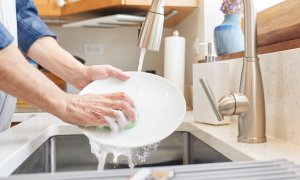
I Made This One Smart Investment to Ensure My Plumbing and Appliances Last Longer
When I replaced my 15-year-old water softener, I did not anticipate exactly how much more efficient and intuitive this new model from Culligan would be.